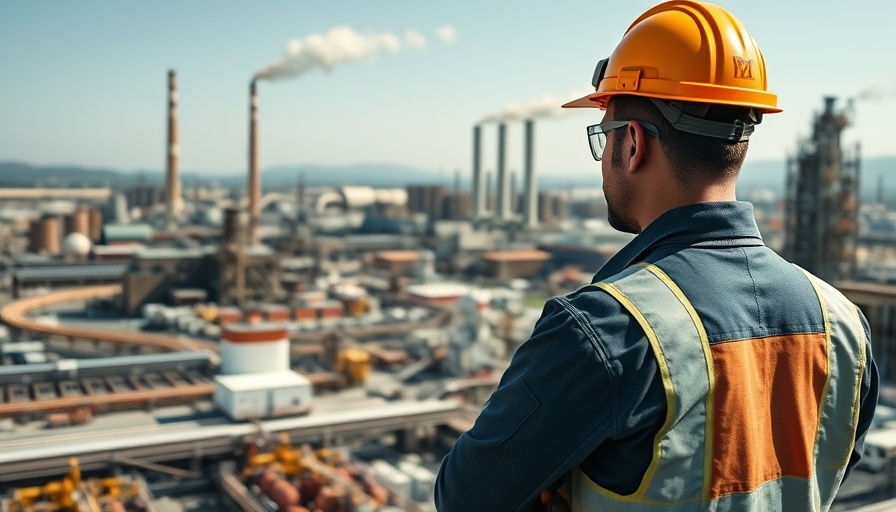
The European Quest for Rare Earth Independence
In the coastal town of La Rochelle, France, a small yet significant factory stands at the forefront of Europe's ambition to reclaim its stake in the rare earth minerals market. Owned by the Belgian multinational Solvay, this facility is focusing on the purification of crucial elements like neodymium and praseodymium. These elements are essential for creating high-performance permanent magnets found in electric vehicles, renewable energy systems, and military applications. This emerging trend highlights Europe’s determination to reduce its heavy reliance on China, which has long dominated the rare earth industry.
Understanding Rare Earths: The Heart of Modern Industry
Rare earth elements (REEs) encompass a group of 17 metallic elements essential for a variety of high-tech applications. The magnets produced from these minerals are integral to the functioning of electric motors, which power everything from smartphones to electric vehicle drivetrains. Historically, around 90% of the world’s supply has been sourced from China, leading to a significant imbalance in global production capacity.
Rare earth elements are not only praised for their strength and heat resistance but also face challenges in terms of mining and production, which can be both environmentally damaging and logistically complex. Countries around the world, particularly in Europe and the U.S., are pivoting towards local production to safeguard against supply chain disruptions.
The La Rochelle Operation: A Step Towards Local Production
Solvay's facility has been operational since 1948, adapting over the decades to meet changing industrial demands. The recent development to focus on rae earths marks a critical pivot as Europe aims to enhance its production capabilities. So far, the factory is in a testing phase, producing small quantities of refined neodymium and praseodymium in anticipation of establishing a sustainable customer base.
Philippe Kehren, CEO of Solvay, remarks, "We are just here signaling that we are available to Europe." This statement underscores the challenges ahead; European industries must embrace these new sources of rare earths, especially as the demand is projected to surge due to the electric vehicle revolution and advancements in renewable energy technologies.
Challenges in Breaking China’s Dominance
One of the largest barriers standing in the way of Europe's rare earth ambitions is the vast infrastructure and efficiency that China has established over the last few decades. Many existing plants are not only capable of producing rare earths at a large scale but are also integrated into supply systems that streamline the production process, reducing costs significantly.
As Europe attempts to establish its own operations, it will need to tackle numerous hurdles including financing, regulatory approvals, and establishing reliable supply chains. Furthermore, environmental regulations in Europe are typically stricter which can lead to increased production costs compared to China.
Investment and Future Predictions
Investing in local rare earth production can potentially reshape Europe’s future industries. In recent months, the European Commission has committed to increasing investment in domestic mining operations, which experts believe could lead not only to independence from China but also to job creation and technological innovation across the continent.
The European Union is aiming to produce as much as 20% of the world’s supply of rare earths by 2030. Achieving this goal will require substantial collaboration between governments, industries, and existing mining companies as it seeks to integrate torn supply chains and form a unit that can compete on the global stage.
Conclusion: The Path Ahead
The La Rochelle facility's efforts signal an essential shift in Europe’s industrial strategy concerning rare earth elements. While the journey toward independence from China will be fraught with challenges, the drive towards local production offers a glimmer of hope for a self-sustaining future in critical mineral supply. For consumers and industries alike, understanding this process is vital as it directly impacts technology availability and pricing.
As the demand for electric vehicles and advanced technologies increases, so too does the urgency for Europe to prioritize its rare earth production capabilities. Those with foresight into this evolving landscape stand to gain immensely both economically and strategically.
 Add Row
Add Row  Add
Add 




Write A Comment